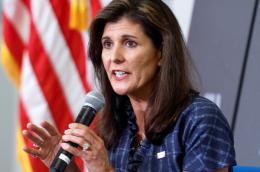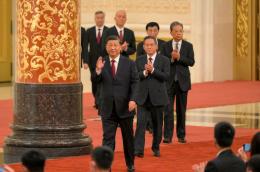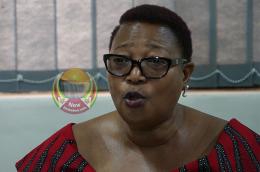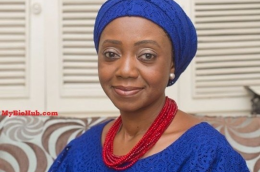Political Parties
Main navigation
As Republicans keep jumping into the 2024 race for president, one demographic group seems notably lacking: women.
More than a dozen candidates are seeking the nomination, including several long shots who announced their bids in recent weeks, in what is the party’s most diverse presidential field ever. Yet Nikki Haley, a former U.N. ambassador and South Carolina governor, is the only woman in the bunch.
Click here to read the full article published by PBS News on 2 July 2023.
The 20th Chinese Communist Party National Congress, held in October 2022, caught the world’s attention—not least because there wasn’t a single woman among the politburo’s 24 members, breaking a tradition of two decades. While the number of women in key political roles globally is steadily improving, female representation in the CCP has worsened over time.
Patriarchal norms undoubtedly contribute to Chinese women’s underrepresentation in political leadership, but this is not a situation that Chinese women alone face. In many societies, women pursuing a career in politics are challenging their traditional gender roles.
Click here to read the full article published by The Australian Strategic Policy Institute on 26 May 2023.
THE Zimbabwe Gender Commission has revealed that women’s participation in all political parties is regressing with no gender equality in practice. This is despite an elaborate legislative and policy framework in Zimbabwe pushing for their participation.
Addressing delegates during a High-Level lnter-Generational dialogue on women’s political participation on Monday, the commission’s chairperson Margret Mukahanana-Sangarwe said: “Statistics from the 2018 harmonized elections reveal regressing low women representation with 31.5% in the National Assembly (85 women, 60 of them coming in through the quota, making those directly elected, effectively only 11.9%) and a mere 13.3% in Local government (267 women against 1689 male councillors).
Click here to read the full article published by New Zimbabwe on 17 May 2023.
The monetisation of politics in Africa is impeding the effective participation of women in political and electoral processes, Ayisha Osori, a democracy and governance expert, has said.
Madam Osori, who is the Director of Open Society Foundations, a civil society organisation, observed that many women on the continent did not have the ability to raise the needed capital to fund their political activities.
Speaking to journalists at the opening of a conference on Increasing Women’s Political Presence in West Africa at the University of Ghana (UG), Legon on Tuesday, she said bankrollers of political parties and activists were mainly men and thus, made it difficult for women to overcome the monetary barriers.
Click here to read the full article published by News Ghana on 16 May 2023.
(CNN) — Lori Chavez-DeRemer sat in the gallery of the House nearly two decades ago with her mom and her twin daughters – tourists peering down at lawmakers on the floor of the chamber.
“I’d really love to be here someday,” the Oregon Republican recalled telling her mother, who encouraged her to think about a run. She’d recently been elected to her city council, but she had her doubts. “I said, ‘Everybody on the floor there probably has a law degree. I’m a stay-at-home mom.’”
But Chavez-DeRemer flipped a Democratic seat in November, helping Republicans win a narrow House majority. She is now among a record 42 Republican women in Congress and one of the first two Latino members of Congress from Oregon.
The trail she has blazed is emblematic of the progress that the Republican Party has made in electing women over the past decade – hard-fought milestones reached only after outside groups began playing a larger role in primaries.
Click here to read the full article published by CNN on 14 January 2023.
Preventing Violence Against Women in Politics – Benchmarks for Political Parties (2022) is a joint paper by democracy organisations working with political parties, which presents interventions for political parties on how to prevent and address any form of violence against women in politics (VAWIP) in order to strengthen women’s participation and representation in politics and political decision-making.
The paper is produced by Demo Finland, International IDEA, The Oslo Center and The National Democratic Institute (NDI) as part of the Political Party Peer Network (PPPeer).
Click here to access the report.









